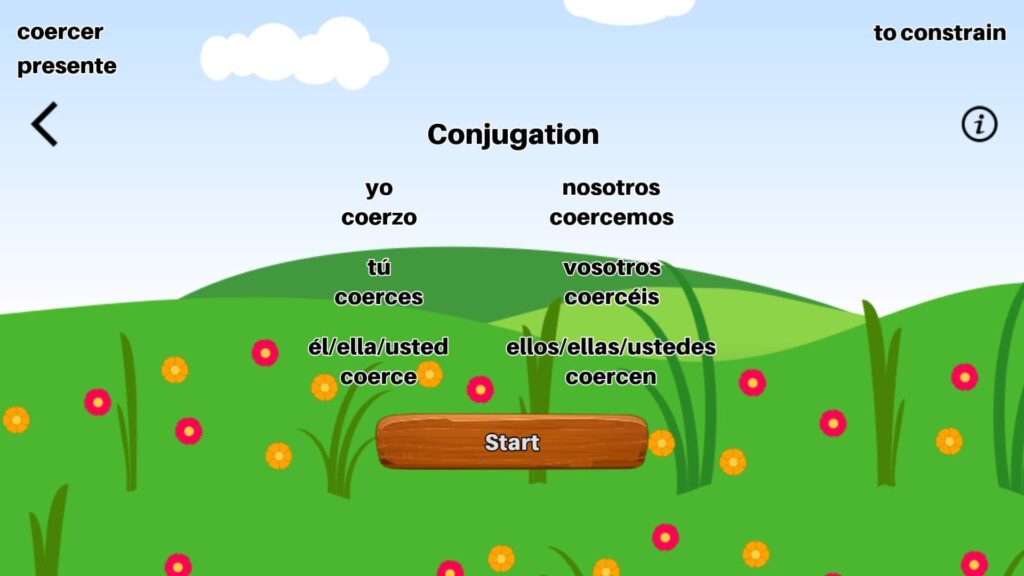Hola, Conjugation Champions!
Ready to add some power to your vocabulary? Today’s verb is coercer, which means “to constrain“. Whether you’re talking about constraints in a fun debate or imposing rules, “coercer” is your go-to verb. Let’s explore its conjugation, uses, and some entertaining examples!
📖 Definition and Meaning
Coercer: To constrain, to coerce, to force.
Example: No me puedes coercer a hacer algo que no quiero. (You can’t force me to do something I don’t want to.)
🌟 Present Tense Conjugation

🌟 Usage Tips
- Debates and Arguments: Use “coercer” when discussing forcing someone into a decision or action.
- Rules and Constraints: Perfect for talking about rules that limit or constrain behavior.
- Pronunciation: Stress the second syllable: co-ER-cer.
💬 Sentence Practice
- Present Tense: No puedes coercerme a cambiar de opinión. (You can’t force me to change my mind.)
- Preterite Tense: Los padres coercieron a su hijo a estudiar. (The parents forced their son to study.)
- Imperfect Tense: Siempre me coercían a seguir las reglas. (They always constrained me to follow the rules.)
📝 Quiz of the Day
Translate the following sentences into Spanish using “coercer”:
- She can’t force him to stay.
- They constrained the workers with strict rules.
- You shouldn’t coerce others into doing what you want.
(Answers at the bottom of this post!)
Keep learning, keep practicing, and keep asserting your linguistic prowess! Every verb you master brings you one step closer to fluency. ¡Hasta mañana!
Stay tuned for tomorrow’s verb and enjoy your day!
Saludos,
Daniela from the DOMA Games team
📝 Answers to Quiz
- Ella no puede coercerlo a quedarse.
- Coercieron a los trabajadores con reglas estrictas.
- No deberías coercer a otros a hacer lo que tú quieres.

